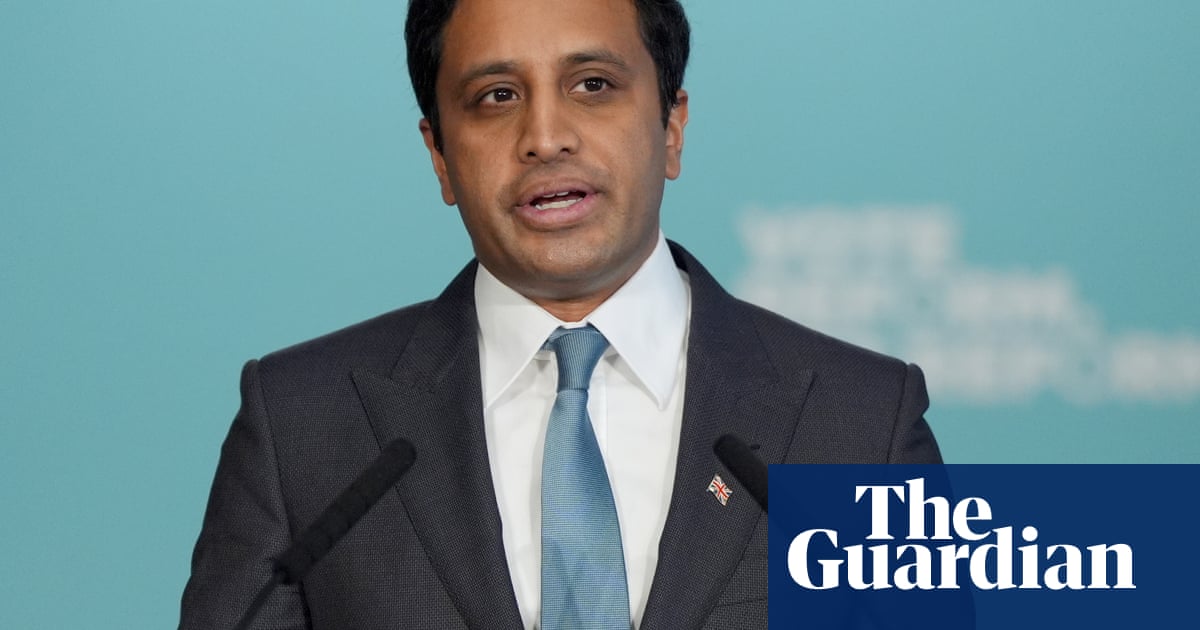Zia Yusufhas said he will return to Nigel Farage’s Reform UK, justtwo days after quitting the party.
Yusuf was the rightwing party’s chair but resigned on Thursday aftersuggesting it was “dumb”of the party’s newest MP to ask the prime minister if he would ban the burqa.
Less than 48 hours later, Yusuf said his decision to quit was a “mistake” that had resulted from “exhaustion” after working long hours and facing reams of racist abuse on social media.
Farage and Yusuf announced on Saturday that Yusuf would return to the fold and would take on several jobs, though his formal title has not been announced.
One of his roles will be to lead whatthe party is calling its “Doge team”– based on the “department of government efficiency” set up in the US by Donald Trump and Elon Musk.
Yusuf will also act as a spokesperson for Reform and have a say in its policymaking and fundraising efforts.
In an interview with the Sunday Times, Yusuf said his intervention over the burqa had been an “error”. Yusuf tweeted on Thursday that Sarah Pochin, the Reform MP for Runcorn and Helsby, had been “dumb” toask Keir Starmer at prime minister’s questionswhether he would ban it.
Hours later he announced he was quitting, saying he did not believe working to get a Reform government elected was a good use of his time.
“When I pushed that tweet out it was a coming together of a bit of exhaustion and a feeling that all I got in return for it was abuse,” he said on Saturday. “I was doing so many things, in the foreground and in the background.”
“What has happened since then is that I’ve been inundated with messages from Reform members and supporters who were saying they were devastated and heartbroken and asking me to really reconsider my decision.”
“I left my business interests behind, I’ve volunteered full-time, because I love my country and I believe the best way to save it and turn it into a great one is for Nigel to be prime minister.”
“It made me realise that in that moment I was turning my back on that – and I didn’t want to do that.”
Yusuf, who is a practising Muslim, insisted he did not have “any strong views about the burqa itself” and said that “if there were a vote and I was in parliament, I would probably vote to ban it actually”.
He described the fallout over Pochin’s comments as “an internal miscommunication issue” and said he had found out about her remarks for the first time on X. “I don’t mind saying that it frustrated me,” he said.
He added that he did not think the issue of burqas “is one of the most important [to] British people when they go about their day-to-day lives”.
Earlier on Saturday, Farage said: “When Zia says anything you cannot believe the absolute tirade of personal racist abuse that he gets … I just think he snapped.” The Reform leader told Times Radio the abuse came “from the very hard extreme right” and blamed “Indian bots”.
Yusuf was brought in by Farage to be Reform’s chair last year, months after he donated £200,000 to the party.
He iswidely credited within Reformfor having professionalised the party, hiring new people, setting up more branches and making it run in a more corporate way.
However, he also rubbed some of the Reform old guard up the wrong way with his management style and by overseeing the departures of several long-serving former members of staff.
Some of Reform’s members have turned against Yusuf over his role in thedeparture of one of the party’s most rightwing MPs, Rupert Lowe, after the pair clashed earlier this year.
The Sunday Times reported that Yusuf’s former role of chair will now be split into two. There will be a front-facing chair tasked with touring the country and speaking to the media, and a deputy in charge of organisational matters.
Ellie Reeves, the Labour party chair, said: “Reform’s revolving door shows that the party is all about one person – Nigel Farage. Zia Yusuf’s humiliating hokey-cokey is laughable but there is nothing funny about Farage’s £80bn in unfunded commitments.”
A spokesperson for the Liberal Democrats said: “It looks like Reform are playing musical chairman.”
